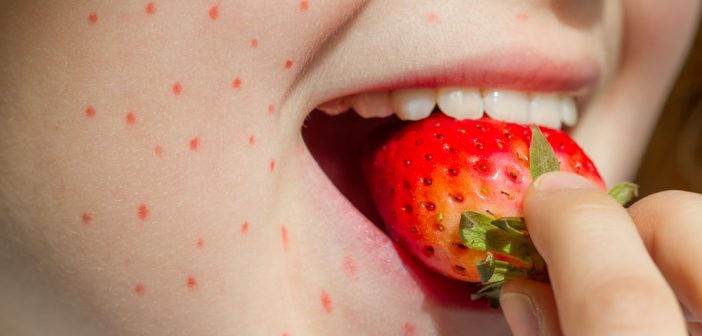If your child has a food allergy, its vital to manage this problem while your child is at school to avoid a severe allergic reaction. Some types of food allergies are dangerous, leading to respiratory distress that requires immediate medical attention. Alternatively, other types of food allergies cause a delayed reaction such as sinus congestion, mild nausea or skin rashes. It is important for your child to avoid particular substances while eating lunch or snacks. Here are some tips to help manage food allergies while your child is at school:
Notify School Administers, Nurses and Teachers
Adults working in an elementary, middle or high school need to understand that your child is allergic to a particular food. You should contact the school’s nurse, principal, cafeteria workers and teachers to ensure that your child’s medical condition is registered. Remember that there are times when a teacher or other staff members are absent from a school, so it is important for a child to tell a substitute teacher or other adult about a dangerous food allergy.
Fight For a Peanut-free School
Peanuts are a dangerous food allergy, if there are several parents who have children with a life-threatening peanut allergy, fight for a peanut-free school. Remember that it isn’t always easy to know if a food contains peanuts, so you must make sure that your school has the right type of emergency medication for your child.
Keep Your Child’s Allergy Medication Nearby
For life-threatening food allergies; a child will need an injection of medication immediately. Some schools permit children or teenagers to keep this medication nearby, but you can also make sure that a teacher or nurse has the medication required to prevent respiratory distress. In addition, make sure that the allergy medication is not expired.
Pack Your Child’s Lunches or Snacks
It’s better to be safe than sorry. Pack your child a lunch or snack that he/she can safely eat. Make sure to label your child’s food carefully so he/she won’t consume someone else’s food accidentally.
Teach a Child to Never Trade Food
Today, most schools have a policy that children can’t trade the food in their lunch bags, but you must also tell your child not to eat someone else’s food. To avoid an allergic reaction, your child shouldn’t eat unlabeled foods that are brought into a classroom for a special occasion.
Children Must Seek Help Immediately
If your child has an allergic reaction at school, it’s important to understand the symptoms immediately. Tell your child to alert an adult about the medical problem right away. With fast medical attention such as an injection of medication, a child is less likely to have a dangerous reaction that will require hospitalization.
Remind School Staff About a Child’s Allergies Before a Field Trip
Before your child goes on a field trip with his/her class, you must remind the staff about food allergies. Peanut butter sandwiches are the most popular type of lunch for school field trips because they food won’t spoil easily, but if your child is allergic to peanuts, then this can be very dangerous.
Teach Your Older Child How To Cook Food
If you have an older child who is ready to go to college, then you must teach him/her how to cook. It is important to understand how to shop for the right ingredients at the supermarket and avoid buying anything with allergens.
Keep Food Preparation Surfaces, Dishes and Tables Sanitized
To prevent any cross-contamination, make sure that your school sanitizes its food preparation surfaces, dishes, eating utensils and tables completely between lunch sessions. Remember that a child’s desk can also become contaminated with allergens during holiday and birthday parties.
College Students Must Read Menus Carefully
When your child is ready to attend college, he/she must understand how to read menus carefully at a school’s cafeterias or restaurants. Most restaurants have information available online so that your child can understand what is in a meal before he/she eats it. In addition, your child must remember to carry his/her allergy medication at all times.
Have an Individualized Health Plan For Your Child
Your child should have an individualized health plan available at his/her school with multiple copies in several locations. If your child travels to several buildings for his/her education, then verify that each building has a copy of his/her health plan. Make sure to provide the new medical information to your child’s school as soon as possible.









